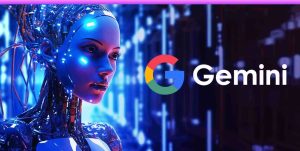Artificial Intelligence (AI) is no longer just a futuristic concept—it is a part of our daily lives, influencing the way we work, communicate, and even think. In 2025, AI has evolved to an unprecedented level, transforming industries such as business, healthcare, education, and entertainment. From self-driving cars to AI-powered medical diagnosis, the potential of artificial intelligence is limitless.
This article explores why AI is so important in modern life, how it is being used in 2025, and a review of some of the top AI-powered platforms along with their pros and cons.
Why AI is Essential in Today’s World
AI has proven to be a game-changer in multiple areas, providing efficiency, accuracy, and automation. Here are some of the key reasons why AI has become indispensable:
- Automation of Repetitive Tasks – AI helps businesses and individuals by handling repetitive and time-consuming tasks, allowing humans to focus on creativity and decision-making.
- Enhanced Decision-Making – AI-powered analytics can process vast amounts of data in seconds, offering insights that improve business strategies, healthcare diagnoses, and more.
- Personalization – From Netflix recommendations to personalized learning in education, AI tailors experiences to individual needs.
- Improved Healthcare – AI assists in diagnosing diseases, predicting health risks, and even supporting robotic-assisted surgeries.
- Smart Assistants – AI-driven virtual assistants like Siri, Alexa, and Google Assistant have become essential in managing daily tasks efficiently.
AI in 2025: Transforming Key Industries
1. AI in Business and Finance
AI-driven analytics, fraud detection, and automated customer service bots are making financial institutions more efficient. Predictive analytics help businesses foresee market trends, reducing risks and maximizing profits.
- Example: Papa John’s has partnered with Google Cloud to automate pizza ordering with AI, ensuring faster and more accurate service. (Source)
2. AI in Education
AI-powered tools help students learn more effectively by adapting to their individual learning styles. Automated grading and AI tutors assist teachers in managing workload while improving student performance.
- Example: In the UK, AI-powered tools are helping educators reduce administrative tasks and focus more on teaching. (Source)
3. AI in Healthcare
AI-driven medical analysis helps detect diseases early and provides recommendations for treatment plans. AI-powered robots assist in surgeries, making them more precise and less invasive.
- Example: AI is being used for drug discovery and predicting disease outbreaks worldwide. (Source)
4. AI in Entertainment and Media
Streaming services like Netflix and Spotify use AI to recommend content based on user preferences. AI-generated art, music, and text content are becoming more common in the creative industry.
- Example: OpenAI’s ChatGPT and DALL·E are being widely used to create content and generate AI-assisted artwork. (Source)
5. AI in Smart Cities and Transportation
AI-powered traffic management systems, autonomous vehicles, and energy-efficient solutions are shaping the future of smart cities.
- Example: Tesla’s Autopilot and Waymo’s self-driving technology are leading innovations in transportation safety and efficiency. (Source)
Top AI Platforms in 2025: Pros & Cons
1. OpenAI (https://openai.com/)
Pros:
- Offers advanced AI models for text and image generation.
- Free and premium versions available for different needs.
- Constantly updated with new AI capabilities.
Cons:
- Free version has limited features.
- Paid plans can be expensive for heavy users.
2. Google AI (https://ai.google/)
Pros:
- Provides AI tools for businesses, developers, and researchers.
- Google Cloud AI enhances automation and analytics.
- Integrates seamlessly with other Google services.
Cons:
- Some features require a paid subscription.
- Concerns over data privacy and security.
3. IBM Watson (https://www.ibm.com/watson/)
Pros:
- Advanced AI for business solutions and automation.
- Strong applications in healthcare, finance, and cybersecurity.
- High level of customization for enterprises.
Cons:
- Expensive for small businesses.
- Requires technical knowledge for full utilization.
4. Tesla AI (https://www.tesla.com/autopilot)
Pros:
- AI-driven self-driving technology improves road safety.
- Constant software updates enhance performance.
- Reduces human driving errors.
Cons:
- Expensive vehicles make it less accessible.
- AI autopilot still requires human supervision.
5. ChatGPT (https://chat.openai.com/)
Pros:
- Ideal for writing, coding, brainstorming, and more.
- Free access with premium upgrades available.
- Easy-to-use interface.
Cons:
- Limited context retention in free versions.
- Occasionally provides incorrect or outdated information.
Conclusion: The Future of AI is Now
Artificial Intelligence is revolutionizing every aspect of our lives in 2025. From business automation to advanced healthcare diagnostics, AI’s potential is immense. While AI offers incredible advantages, ethical concerns regarding data privacy, bias, and accessibility must be addressed to ensure responsible AI use.
AI is not just a part of the future—it is shaping our present. As technology continues to evolve, AI will become even more integrated into our daily lives, making tasks easier, workplaces smarter, and the world more connected than ever before.
What are your thoughts on AI’s role in 2025? Let us know in the comments! 🚀


